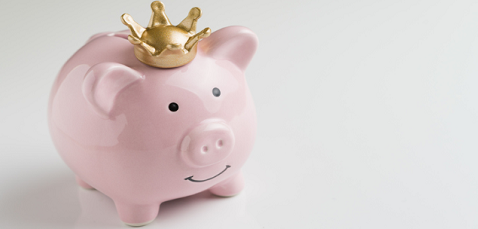
“Cash is king” is fairly well known phrase. However for many people in business, both big and small, it’s meaning is often not fully understood. I’ll get straight to (half) the point:
It’s not about cashflow
Of course, cash flow is incredibly important. Who wouldn’t want a good cash generating business? Note the phrase used is “cash generating”, also known as having positive cashflow. That means you’re making more cash than you’re spending. Not rocket science, just commerce 101.
Cashflow is important. However, it’s the cash on your balance sheet that is king. More to the point, it’s the cash held in reserve, over and above what you need to fund your operating and other regular cash costs. This is how you pay the bills when the revenue stops, and it will.
I apologise if it seems I’m just tell you things you already know. Actually no, I don’t apologise. It’s amazing how many people forget the basic principle – especially when it’s not their business and/or not their money. Even seasoned executives and directors appear to forget these things at times. This article isn’t about agency theory though, so back to the point.
COVID-19 has shown just how quickly the revenue can stop, think Virgin Australia or the local bar nearby that went out of business. While black swan, economy wide events like COVID don’t happen often; any business can be left just as crippled by firm or sector specific shocks. I haven’t done the research, but logic dictates that those businesses that were significantly (and economically) impacted by COVID, and survived had a cash reserve to get them through until the government’s economic stimulus arrived in the bank. Then it’s those who had even more than that in reserve that will remain viable when the stimulus is withdrawn.
Some “lazy cash” on the balance sheet can help in all sorts of ways
On the flip side to those adversely imapcted by COVID, some businesses flourished. Bike stores, streaming services and video conferencing solutions are all good examples. Some wanted to grow even faster that the “organic” growth they experiences, but were constrained from doing so due to not having spare cash amid tight lending conditions. Those in the same situation with spare cash, could invest unimpeded.
Having a cash reserve doesn’t mean accumulating cash (assets) at the expense of paying down debt (liabilities), or investing to grow the business. These things too are important. It’s about doing those things whilst building a cash reserve that enables you to keep going for at least 3-6 months (or more depending on the length of the business cycle your business exists in) if the tap stops.
It also isn’t about having a business that has high cash flow, so revenue comes back quickly when it stops. These industries just tend to need cash reserves that are higher multiples of their average expenses per business-cycle than those with slower cash flow (because they are likely to go through more cycles before the tap comes back on). This is for any business, big or small; fast or slow.
Cash is the fundamental building block for a strong balance sheet. I also don’t mean having only cash and no debt, debt is a very useful and sometimes essential tool for growing your business. It’s all about keeping things in reasonable proportions.
It’s all about a healthy balance sheet. That’s what cash is king really means. Having a balance sheet that is healthy enough you can access cash, and quickly, in the event something happens to your revenue that means you need to cover your expenses another way.
